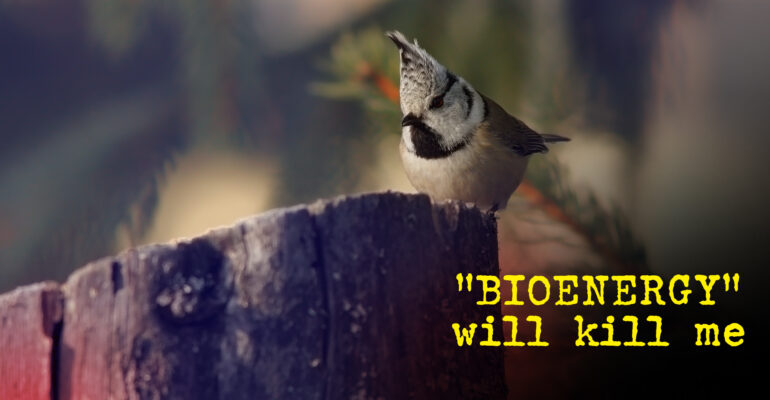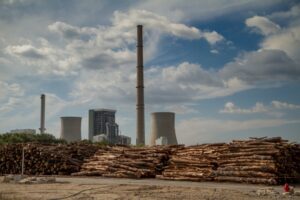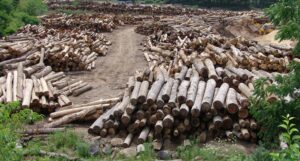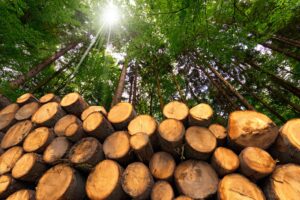Burning trees is not a climate solution
#StopFakeRenewables
When you hear the word ‘renewables’ you probably think of solar panels and wind turbines. Clean, carbon-free energy derived from the forces of nature.
The truth is that in Europe, more than half of what we call ‘renewable energy’ actually comes from burning wood and crops.
This means trees and crops are being burned in the name of climate action – even though doing so increases emissions compared to fossil fuels.
It’s a scam made possible by the EU law that supports renewable energy: the Renewable Energy Directive. This law incentivises some good renewable energy, but also encourages countries to turn old, dirty, coal plants into new, dirty, wood burning plants.
Burning wood produces more carbon dioxide than burning fossil fuels and trees can take decades to grow back, but despite this, power stations that burn wood are allowed to call themselves ‘renewable’ – even if they are burning whole trees, harvested from precious habitats and shipped from overseas.
But that’s not all…
Because EU law defines the burning of trees and crops for energy as ‘renewable’ and ‘carbon neutral’ these producers enjoy billions of Euros in subsidies every year… coming out of your pocket.
That’s right, you are currently subsidising the destruction of our forests and natural habitats as well as an increase in air pollution and respiratory diseases.
But you can help end this madness! The European Commission is asking the public to give their opinion on the law that makes this scandal possible, but only until the 9th of February 2021.
The more people that respond, the more likely we are to get the law changed.
Forest and climate experts have put together a very simple message which you can help us pass on to the European Commission: don’t burn forests and food for energy, and #StopFakeRenewables!
Sign this petition and we’ll send the message to the European Commission on your behalf.
Thank you








